How to Write a Book
How to Write a Book. Writing a book can be a daunting task. The blank page could be a canvas full of potential, or it could be a challenging abyss. We are here to help you navigate this journey. This guide will provide you with the necessary insights and steps on how to write a book from start to finish.
Key Takeaways Table
| Stages of Writing a Book | Key Takeaways |
|---|---|
| Understanding the Why | Identify your motivation to write; it can serve as a compass guiding your writing journey. |
| Pre-Writing Stage | Lay a strong foundation with a clear book idea, understanding of your audience, and a structured outline. |
| Writing Process | Start writing, develop your unique style, create compelling characters, and maintain motivation throughout. |
| Revision | Refine your work through multiple revisions, leveraging self-editing, peer reviews, and professional editing. |
| Preparing for Publication | Choose between traditional and self-publishing, protect your intellectual property, and prepare for marketing. |
| Marketing | Craft a unique marketing strategy, leverage social media, organize book launches, and encourage reviews. |
| Beyond the Book | Look beyond your first book to further opportunities, network within writing communities, and continue learning to improve your craft. |
Understanding the Why: Motivations for Writing a Book
Before embarking on the journey of writing, it’s crucial to understand the ‘why’ behind your aspiration.
The Call to Write: Identifying Your Why
Every author has a unique reason to write, be it to communicate a story, share knowledge, or express their creativity. For some, writing is a therapeutic process. Stephen King, for instance, famously remarked, “[Writing] has remained my therapy, something I must do to keep my sanity.” (source)
So, ask yourself – Why do you want to write a book? What drives you?
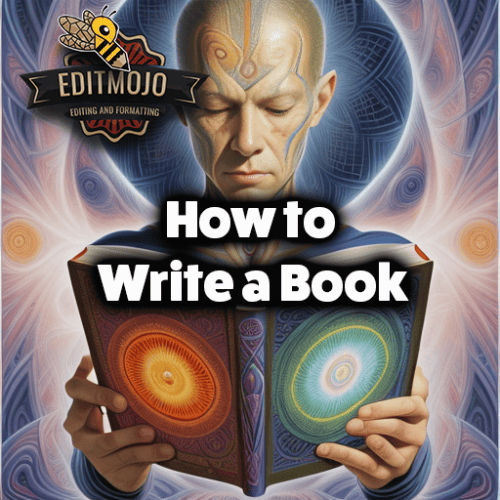
Potential Benefits of Writing a Book: Personal, Professional, and Societal
Writing a book can bring numerous benefits. On a personal level, it can serve as a medium for self-expression and creativity. Professionally, it can help establish your authority in a particular field. On a societal level, it can inspire, educate, or entertain your readers.
Case Studies: How Writing Transformed Lives
J.K. Rowling’s life took a dramatic turn with the publication of the “Harry Potter” series. Her journey from living on state benefits to becoming a bestselling author is a testament to how writing can transform lives. (source)
The Pre-Writing Stage: Laying the Foundation
The first step to writing a book is laying a solid foundation. It involves ideation, understanding your audience, market research, creating an outline, and building a writing routine.
Ideation: Generating and Evaluating Book Ideas
The seed of a book is an idea. Start by jotting down potential ideas, regardless of how absurd or brilliant they seem. Then, evaluate these ideas based on their originality, relevance, and your passion for them. This process can help you identify a book idea that you’re both excited and confident about.
Knowing Your Audience: Identifying and Understanding Your Readers
Once you have an idea, it’s crucial to understand your potential readers. Consider their interests, age group, preferences, and how your book could add value to their lives. This understanding will inform the content, tone, and style of your writing.
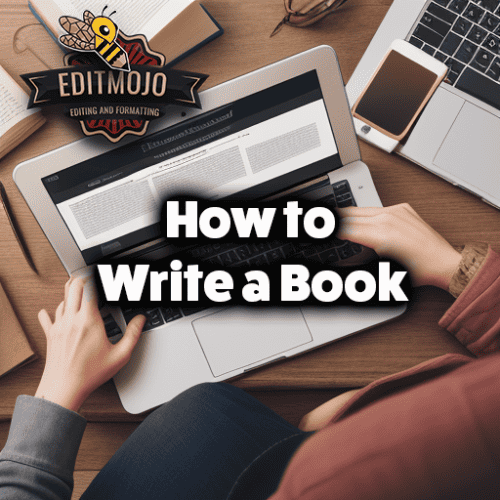
Market Research: Trends, Gaps, and Opportunities
Understanding market trends is crucial for your book’s success. Review similar books in your genre, assess their strengths and weaknesses, and identify gaps that your book can fill. Tools like Google Trends and Amazon’s Best Sellers list can provide valuable insights into current market trends.
Outline Creation: Structuring Your Book for Success
An outline is your roadmap. It gives structure to your ideas and ensures that your narrative flows smoothly. Authors like John Grisham swear by outlining. As Grisham explains, “The books are carefully outlined before I ever start. Chapter by chapter, from beginning to end. And usually tedious and boring and even painful – but it’s the only way to make sure the story’s going to work.” (source)
Building a Writing Routine: The Role of Consistency and Discipline
Consistency is key in writing a book. Set aside dedicated writing time each day, even if it’s just for a short period. This habit
will build your writing muscle over time and help you stay committed to your project.
Diving into the Writing Process: From the First Sentence to the Last
Now comes the fun part – writing! It involves overcoming the fear of starting, nurturing your writing style, developing characters and setting, constructing plots, and staying motivated.
Getting Started: Overcoming the Fear of the Blank Page
Starting can be scary. As Mark Twain said, “The secret of getting ahead is getting started.” Don’t aim for perfection in your first draft. The key is to get your thoughts out there; you can always refine them later.
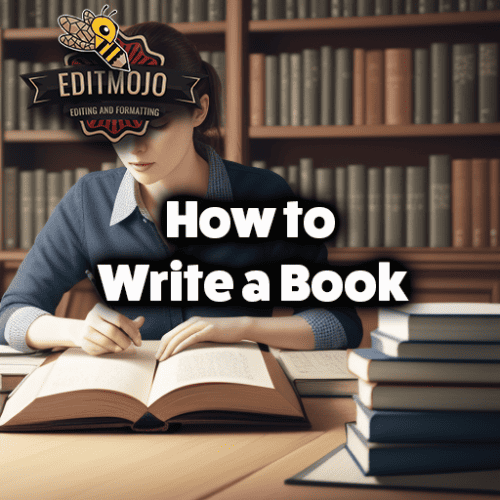
Nurturing Your Writing Style: Finding and Honing Your Voice
Your writing style or voice is unique to you. It’s how you express your thoughts and ideas. To hone your writing style, read widely, write regularly, and be open to feedback.
Developing Characters and Setting: The Heart and Soul of Your Story
Characters and settings bring your story to life. Invest time in crafting multidimensional characters and vivid settings. They should resonate with your readers, evoking empathy, curiosity, or intrigue.
Constructing Plots: The Art of Crafting Engaging Narratives
A compelling plot is what keeps your readers turning the pages. Create a narrative arc that includes exposition, rising action, climax, falling action, and resolution.
Strategies for Handling Writer’s Block: Tips from Renowned Writers
Writer’s block can halt progress. Strategies to combat it include taking breaks, switching writing locations, freewriting, or discussing your ideas with others. Remember, even acclaimed authors like Neil Gaiman face writer’s block. He advises, “Just write. It doesn’t matter what. Write something. Writer’s block is when you have the wrong kind of emptiness in your head.” (source)
Staying Motivated: How to Keep Going When the Writing Gets Tough
Writing a book is a marathon, not a sprint. Stay motivated by setting small, achievable writing goals, celebrating milestones, and staying connected with your ‘why’.
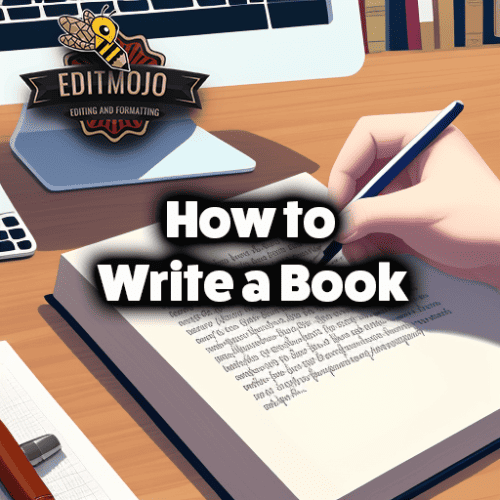
Mastering the Art of Revision: Refining Your Work
Revision is an essential stage of the writing process where you refine and polish your manuscript.
The Importance of Revising: Why Your First Draft Isn’t Your Final Draft
As Ernest Hemingway famously said, “The first draft of anything is shit.” The first draft is your opportunity to get your ideas out. Revising those ideas is what shapes them into a book worth reading.
Techniques for Effective Self-Editing: From Line Edits to Structural Overhauls
Self-editing involves line editing (focusing on language and style), copy editing (focusing on grammar, punctuation, etc.), and developmental editing (focusing on content and structural issues).
Peer Reviews and Writing Groups: Leveraging Collective Wisdom
Peer reviews and writing groups can provide invaluable feedback. They offer fresh perspectives on your work, allowing you to spot potential issues and areas for improvement.
Working with Professional Editors: What to Expect and How to Choose
Professional editors can provide expert feedback to take your manuscript to the next level. When choosing an editor, consider their experience, style, and past client reviews.
Utilizing Online Editing Platforms: The Case of EditMojo.com
Online platforms like EditMojo.com have been growing in popularity among writers for their convenience and efficiency. They offer a one-stop-shop for all your editing needs, from line edits to structural overhauls.
One key feature of EditMojo.com is its diverse range of professional editors, each with their own unique experiences and styles. This allows writers to choose the perfect editor that aligns with their writing needs and preferences. The platform is designed with transparency in mind, featuring a detailed profile for each editor along with past client reviews. This feature helps ensure that you find the best match for your specific project.
In addition to professional editing, EditMojo.com also promotes a sense of community. The platform includes an integrated feature for peer reviews and writing groups. This creates an interactive space where users can exchange ideas, provide constructive criticism, and gain fresh perspectives on their work.
Finally, EditMojo.com offers various self-editing tools. These automated features can provide instant feedback on grammar, punctuation, and other technical aspects of writing. While they don’t replace human editors, they provide valuable assistance during the initial stages of editing.
Overall, EditMojo.com is a versatile platform that caters to writers of all levels, combining professional expertise, peer interaction, and technical tools to help refine your manuscript. It is an ideal tool for those looking to streamline the editing process without sacrificing quality.
Preparing for Publication: Final Steps before Your Book Goes Live
The final stage of writing a book involves preparing for publication. This includes choosing a publishing path, dealing with legalities, and considering the potential for marketing and promoting your book.
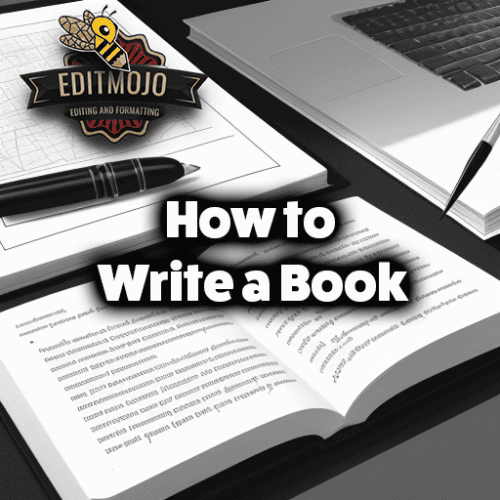
Choosing the Right Publishing Path: Traditional vs. Self-Publishing
The choice between traditional and self-publishing depends on factors like control over the process, potential for earnings, and personal preference
. Research both options thoroughly to make an informed decision.
The Querying Process: Pitching Your Book to Agents (Traditional Publishing)
If you opt for traditional publishing, you’ll need to pitch your book to agents via a query letter. This involves writing a concise, compelling pitch and tailoring it to each agent’s preferences.
The Self-Publishing Journey: From Manuscript to Published Book
For self-publishing, you’ll need to handle formatting, cover design, and selecting a self-publishing platform, among other tasks.
Copyrights and Legalities: Protecting Your Intellectual Property
Before publishing, ensure your work is protected. Register your copyright, and be aware of legal issues such as libel, invasion of privacy, and infringement of copyright.
Marketing Your Book: Getting Your Story Out There
Even the best books need marketing to reach their intended audience.
Crafting a Marketing Strategy: Identifying Your Unique Selling Proposition
Identify what makes your book unique. Use this unique selling proposition (USP) to craft a marketing strategy that makes your book stand out in the market.
Social Media for Authors: Building an Online Presence
Social media platforms offer opportunities to connect with readers, promote your book, and build an author brand. From Twitter to Instagram to Goodreads, find platforms that align with your audience and content.
Book Launches and Book Tours: Generating Buzz Around Your Book
Book launches and book tours (even virtual ones) can generate buzz for your book. Collaborate with local bookshops, libraries, or online communities for these events.
Approaching Book Reviews: From Professional Critics to Reader Reviews
Reviews can boost your book’s credibility. Encourage readers to leave reviews, and consider sending copies of your book to professional critics.
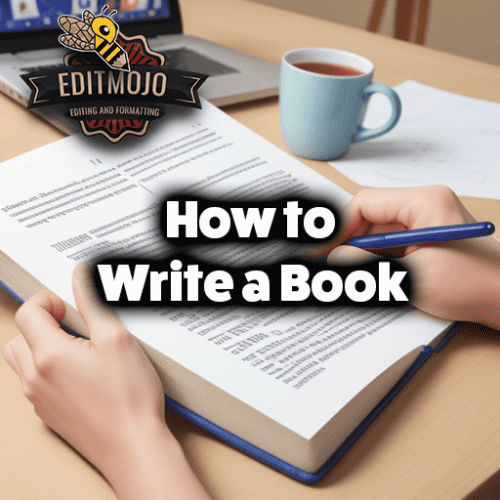
Beyond the Book: How to Grow as a Writer
Finally, consider what comes after this book. How can you continue to grow as a writer?
Building a Writing Career: Opportunities Beyond Your First Book
Writing a book is a significant achievement. But it doesn’t have to end there. Consider writing more books, articles, or branching into teaching or speaking engagements.
Networking and Community: Connecting with Other Authors and Readers
Join local and online writing communities. Attend literary festivals and workshops. Networking can lead to opportunities and provide a sense of camaraderie.
Continuous Learning: Writing Workshops, Courses, and Resources
Never stop learning. Attend workshops, enroll in courses, and consume resources to keep improving your craft.
Conclusion: The Last Word
Writing a book from start to finish is a rewarding journey. With passion, discipline, and a willingness to learn, anyone can write a book. Remember, the world needs your unique voice and story. So, what are you waiting for? Start writing your story today.
Top Five Questions & Answers Table
| Questions | Answers |
|---|---|
| How do I find a book idea? | Begin by jotting down all potential ideas that come to mind. Evaluate these ideas based on their originality, relevance, and your passion for them. |
| How do I overcome writer’s block? | Try taking breaks, changing your writing environment, freewriting, or discussing your ideas with others. |
| Should I choose traditional publishing or self-publishing? | The choice depends on factors like control over the process, potential earnings, and personal preferences. Research both options thoroughly. |
| How can I market my book? | Identify your book’s USP and create a marketing strategy. Utilize social media, organize book launches, and encourage reviews. |
| How can I grow as a writer beyond writing this book? | Consider writing more books, articles, or even branching into teaching or speaking engagements. Always keep learning. |
Top Seven Resources & Further Reading Table
| Resources | Keyword in the link |
|---|---|
| Stephen King’s Advice on Writing | Stephen King’s Writing Wisdom |
| J.K. Rowling Biography | J.K. Rowling’s Journey |
| Google Trends | Market Research with Google Trends |
| John Grisham on Writing | John Grisham’s Writing Process |
| Neil Gaiman’s Writing Advice | Overcoming Writer’s Block |
| Ernest Hemingway on First Drafts | The Art of Revision |
| The Balance Careers on Traditional vs. Self-Publishing | Choosing Your Publishing Path |
